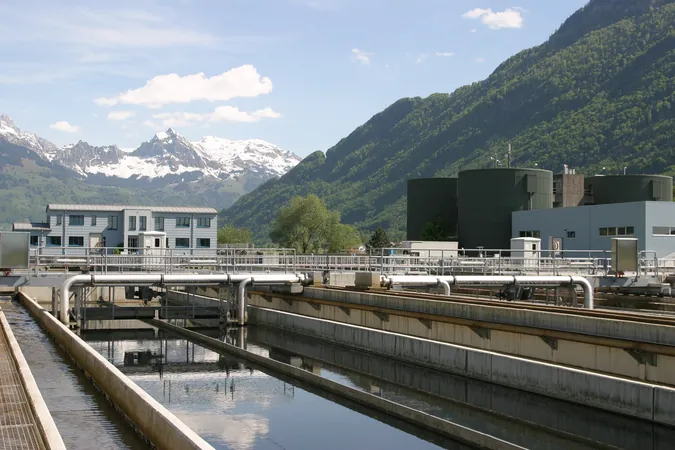
Shocking Discovery: Common Detergent Additives Could Be Creating Glyphosate in Wastewater!
2025-05-14
Author: Wei
A Surprising Turn in Wastewater Chemistry
Recent research has unveiled a startling connection between popular detergent additives and the notorious herbicide glyphosate. Aminopolyphosphonates, commonly found in household cleaners, may transform into glyphosate during wastewater treatment processes.
Major Findings from a Leading Research Team
Led by Professor Stefan Haderlein at the University of Tübingen, this groundbreaking study reveals that these additives are contributing significantly to the high glyphosate levels detected in European waters—something previously thought to stem almost entirely from agricultural use.
The Glyphosate Controversy
Glyphosate is the world’s most widely used herbicide, inhibiting essential proteins necessary for plant growth. When it leaches into the soil, it finds its way into our groundwater and surface water, creating potential ecological disasters. Despite its relatively low toxicity to humans, debates continue over its possible carcinogenic effects.
Surprising Sources of Contamination
Professor Haderlein, alongside his colleague Carolin Huhn, noted that glyphosate concentrations in water remained high even during periods with minimal agricultural input. This led them to suspect that detergent ingredients like aminopolyphosphonates, released from wastewater systems, might be to blame.
The Role of Manganese in Transformation
Their laboratory experiments identified manganese compounds—ubiquitous in soil and wastewater—as crucial catalysts for converting aminopolyphosphonates into glyphosate. The researchers experimented with various conditions, discovering that even minimal manganese, combined with oxygen, could yield glyphosate.
A Call for Further Investigation
Haderlein expressed skepticism about prior studies suggesting microbial decomposition of aminopolyphosphonates, advocating for a deeper understanding of the chemical reactions occurring within wastewater systems. "We've proven that these detergent additives can generate glyphosate, but it’s essential to further investigate the implications of this finding," he emphasized.
Implications for Environmental Protection
The implications of this research are profound. As Professor Karla Pollmann, President of the University of Tübingen, remarked, this study uncovers critical relationships that could enhance environmental protection efforts.
Conclusion: A New Threat to Water Safety?
As we uncover these risks linked to everyday products, it becomes increasingly crucial to reevaluate how we manage our wastewater systems. With glyphosate already causing significant ecological concern, this revelation about detergent additives could change the game in environmental safety.



 Brasil (PT)
Brasil (PT)
 Canada (EN)
Canada (EN)
 Chile (ES)
Chile (ES)
 Česko (CS)
Česko (CS)
 대한민국 (KO)
대한민국 (KO)
 España (ES)
España (ES)
 France (FR)
France (FR)
 Hong Kong (EN)
Hong Kong (EN)
 Italia (IT)
Italia (IT)
 日本 (JA)
日本 (JA)
 Magyarország (HU)
Magyarország (HU)
 Norge (NO)
Norge (NO)
 Polska (PL)
Polska (PL)
 Schweiz (DE)
Schweiz (DE)
 Singapore (EN)
Singapore (EN)
 Sverige (SV)
Sverige (SV)
 Suomi (FI)
Suomi (FI)
 Türkiye (TR)
Türkiye (TR)
 الإمارات العربية المتحدة (AR)
الإمارات العربية المتحدة (AR)